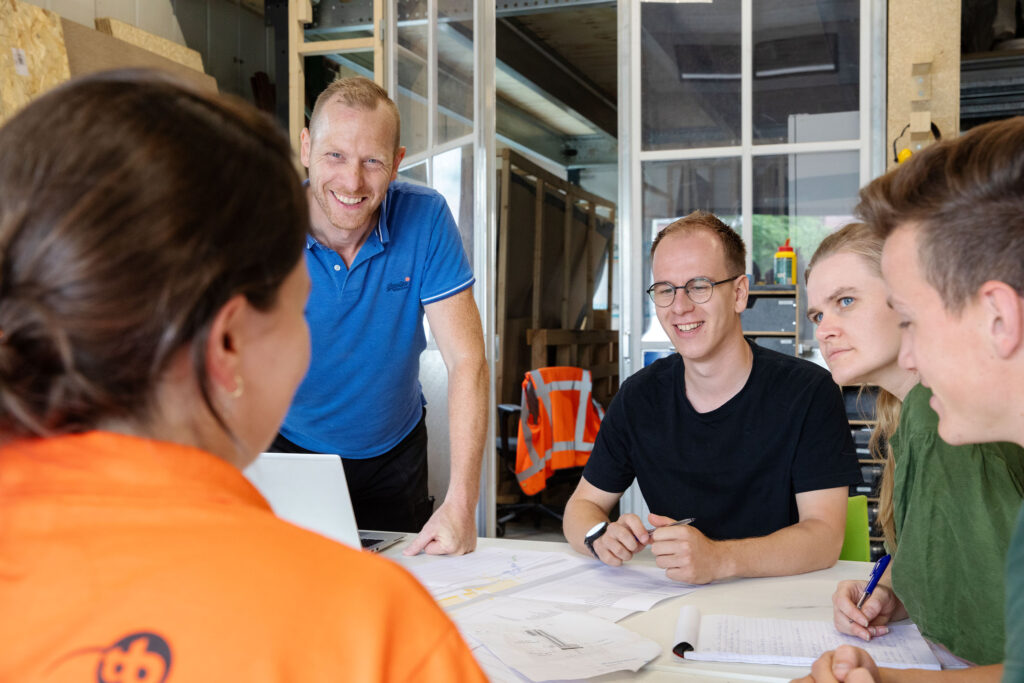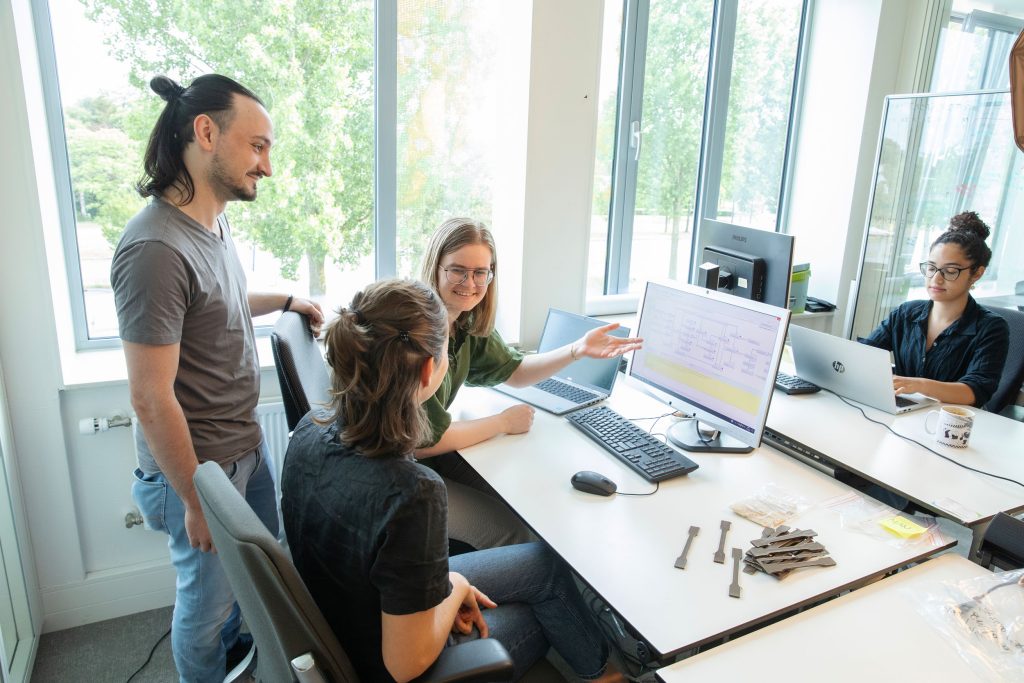
Make an impact with technical solutions
During the Master’s program in Materials & Energy Transition, you’ll learn to develop technical solutions for the major challenges surrounding energy and materials. You’ll do this based on a solid theoretical foundation, but always with practical application as a starting point.
Although the program is officially a full-time Master’s program, it’s easily combined with a job. You’ll work three to four days a week for your employer, attend classes one day a week, and spend another day studying independently. This way, you’ll learn to apply new knowledge directly to your organization’s practice.
From day one, you’ll conduct applied research in collaboration with companies, government agencies, or knowledge institutions. You’ll consider not only technology but also the social and economic aspects of change. Because true impact only occurs when technology, policy, and human behavior converge.
The Master MET is ideal for young professionals; those already working in the field and who, from a technical background, want to delve deeper into sustainable transitions. You’ll learn to think interdisciplinary, collaborate with professionals from other fields, and develop a broad understanding of the opportunities of sustainable innovation.
Upon completion, you’ll be awarded the title of Master of Science (MSc). But more importantly, you’ll enhance your ability to make a real difference in the energy transition.
What can you become?
With your master’s degree, you can work in a variety of roles at companies, government agencies, or consulting firms—from project or process engineers to sustainability specialists. Many alumni find their niche as:
- Consultant – you advise organizations on the implementation of sustainable energy and materials solutions.
- Process engineer – you improve production processes and contribute to sustainability in industry.
- Project engineer – you design and research sustainable products and systems.
- R&D technologist – you develop innovative technologies for circular production.
- Sustainability coordinator or environmental engineer – you assess and ensure sustainability in projects and policies.
The master’s program lasts two years. In the first year, you’ll combine courses with practical assignments that you’ll complete at your workplace. In the second year, you’ll work on an individual graduation project within your organization or with an Avans research group.
Key courses include:
- Science and engineering for MET
- Material systems and solutions
- Energy systems and solutions
- Making transitions work
The program boasts a strong learning community, where students, lecturers, and professionals share knowledge and inspire each other. This allows you to build a valuable network that remains relevant even after graduation.
Admission
You can apply with a completed bachelor’s degree in a technical or life sciences field, such as mechanical engineering, electrical engineering, chemical engineering, or environmental sciences. You also need a work placement – often just your current job.
When you register in Studielink, we ask you to submit your resume (max. 1 A4 page), motivation letter (min. 1 A4 page), and transcript of your bachelor’s program grades. An intake and assessment are part of the admissions procedure.
Practical Information
- Duration: 2 years
- Study format: full-time, easily combined with work
- Language: English
- Location: Avans University of Applied Sciences, Breda, Netherlands
- Start: September
- Tuition fee (2025–2026): €2,601 (statutory fee)

Register
You can register for a course through Studielink. Log in with your DigiD. Applying for a DigiD takes five days. The following application deadlines apply.
| Starting month | Location | Deadline for registration |
| September | Netherlands | August 31, 2026 |
| September | Outside EEA | May 1, 2026 |
Ready for the next step?
Do you, as a professional, want to contribute to the sustainable transition of our society? Then the Master’s in Materials & Energy Transition is exactly what you’re looking for. You’ll not only expand your knowledge, but also your impact – on your organization and on the world.




